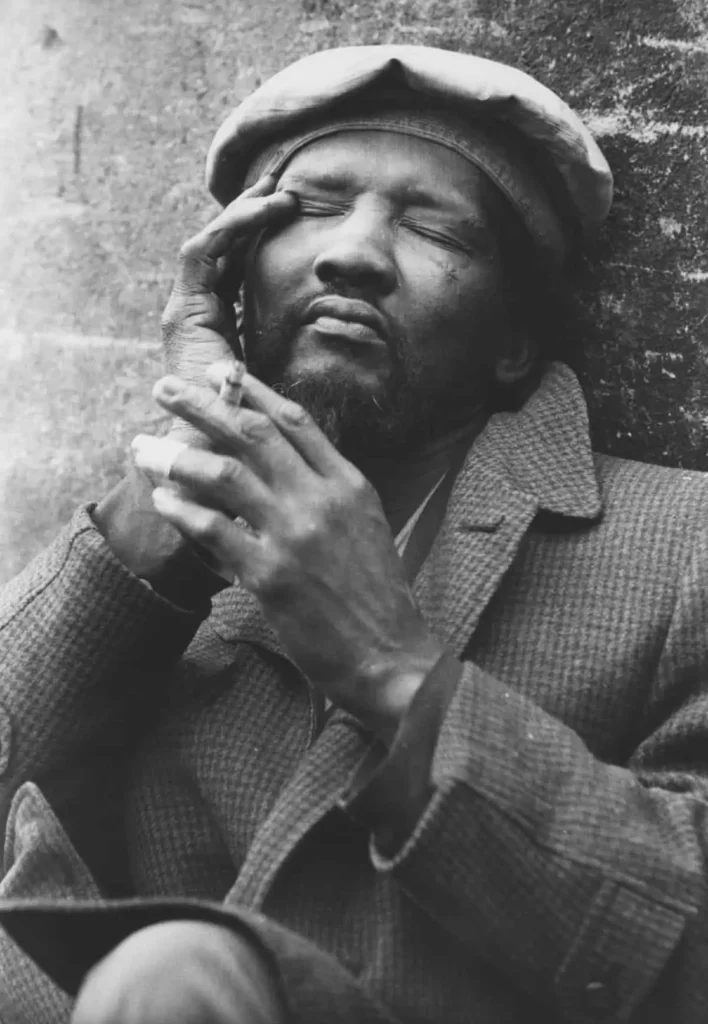
Chester Higgins has been using his extraordinary talents for decades to document America (the cities, the country, and all the people who populate it) and the wider world (check out his work and support this vital national treasure here). His use of photography to tell stories is arresting and informative, sensitive and provocative. I took a deep dive into his collection a couple of years ago, and there was one image in particular (“Bowery Denizen, 1985”) that I instantly connected with: it was painful but beautiful; it was a single moment of an individual life but it suggested entire movies and novels and documentaries — mostly about the myriad ways we do so little to protect and support each other, especially our most vulnerable communities.
The image wouldn’t leave me alone, so I attempted to grapple with it, in my way.
Mr. Higgins was kind enough to allow use of this photograph, and it’s wonderful to collaborate again with The Decadent Review (previously published poems from this wonderful journal here, here, here, and here) to offer up this tribute not only to Higgins’s artistry, but the act of bearing witness.
After Chester Higgins’s “Bowery Denizen, 1985”
“E detto l’ho perché doler ti debbia!”
Inferno, xxiv, 151 — Dante
Those fingers: holding neither money nor a wallet hoarding it
(hold, as in the verb meaning to carry, to possess; also to hold,
as in keep safe, the way banks hold deposits like promises kept,
the way he can’t hold his liquor or too many times he was caught
holding drugs, or holding up his hands as if to say “hold it,”
showing he wasn’t holding a gun, was not holding anything
that could hurt anything worse than he’d hurt himself, on the street
at all hours because he can’t hold a job, the system with a hold on him,
meaning he’s logged some hours in the holding tank, being held
on suspicion of murder or vagrancy, laws holding him accountable).
Hold on: is this because he wasn’t held by his mother; why he can’t
hold his ex-wife but knows to hold his tongue, the same way he holds
his spot in line, waiting for a hot meal or cold cup of coffee, holding
his coat during a warm day in autumn knowing he’ll need it that night,
holding it close so nobody else steals it while he’s holding something
else, like hope, with his hand held out for spare change—the dirty skin
creased, chapped, and cracked during evenings when heavy skies hold
snow— held in contempt by those who presume what his future holds,
or assure him that Christ is holding a place in heaven for every sinner:
our reward for living in a world unable to hold the weight of its pain?
